Sheet Metal
- Free molds design
- As fast as 1 day for prototyping.
- Lightly assembly
- Cost-effictive for volume production
Sheet metal is a form of metal that is rolled or beaten into thin, flat pieces. It is a versatile and widely used material in a wide range of industries, including automotive, aerospace, construction, and appliances. Sheet metal is also used in many everyday items, such as cans, food packaging, and roofing materials.
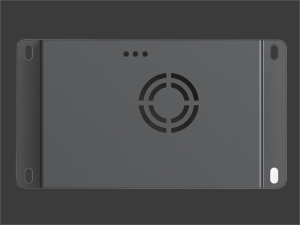
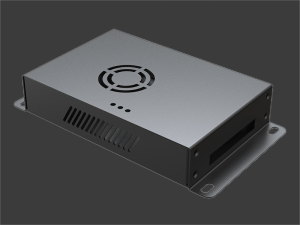
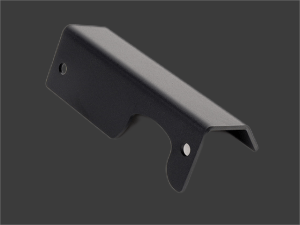
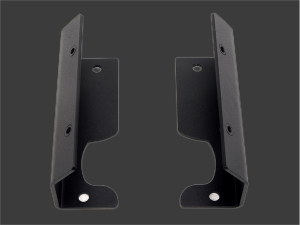
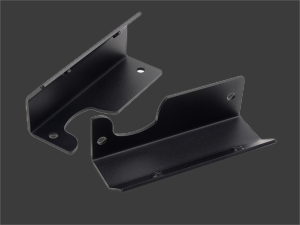
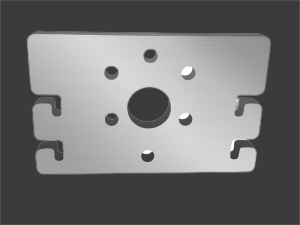
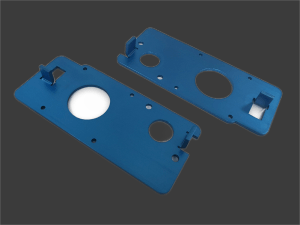
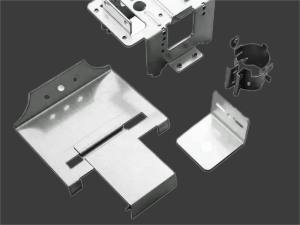
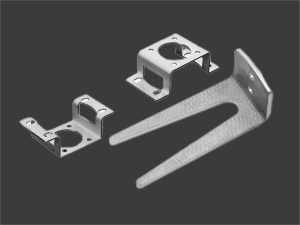
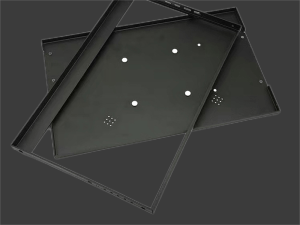
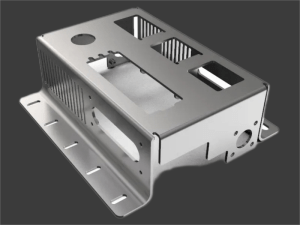
Tolerance
we can achieve as tight as 0.05 mm. For unspecified size, we will generally quote and machine as per ISO-2768 f (below table).
| Permissible deviations in mm for ranges in nominal lengths | Tolerance class designation (description) | |||
| f (fine) | m(medium) | c(coarse) | v(very coarse) | |
| 0.5 up to 3 | ±0.05 | ±0.1 | ±0.2 | / |
| over 3 up to 6 | ±0.05 | ±0.1 | ±0.3 | ±0.5 |
| over 6 up to 30 | ±0.1 | ±0.2 | ±0.5 | ±1.0 |
| over 30 up to 120 | ±0.15 | ±0.3 | ±0.8 | ±1.5 |
| over 120 up to 400 | ±0.2 | ±0.5 | ±1.2 | ±2.5 |
| over 400 up to 1000 | ±0.3 | ±0.8 | ±2.0 | ±4.0 |
| over up 1000 to 2000 | ±0.5 | ±1.2 | ±3.0 | ±6.0 |
| over up 2000 to 4000 | / | ±2.0 | ±4.0 | ±8.0 |
| Permissible deviations in mm for ranges in nominal lengths | Tolerance class designation (description) | |||
| f (fine) | m(medium) | c(coarse) | v(very coarse) | |
| 0.5 up to 3 | ±0.2 | ±0.2 | ±0.4 | ±0.4 |
| over 3 up to 6 | ±0.5 | ±0.5 | ±1.0 | ±1.0 |
| over 6 | ±1.0 | ±1.0 | ±2.0 | ±2.0 |
| Permissible deviations in degrees and minutes for ranges in nominal length | Tolerance class designation (description) | |||
| f (fine) | m(medium) | c(coarse) | v(very coarse) | |
| up to 10 | ±1º | ±1º | ±1º30′ | ±3º |
| over 10 up to 50 | ±0º30′ | ±0º30′ | ±1º | ±2º |
| over 50 up to 120 | ±0º20′ | ±0º20′ | ±0º30′ | ±1º |
| over 120 up to 400 | ±0º10′ | ±0º10′ | ±0º15′ | ±0º30′ |
| over 400 | ±0º5′ | ±0º5′ | ±0º10′ | ±0º20′ |
Material for sheet metal:
Sheet metal is typically made from a variety of metals, including steel, aluminum, copper, brass, and stainless steel. Each type of metal has its own unique properties and advantages, making it suitable for different applications.
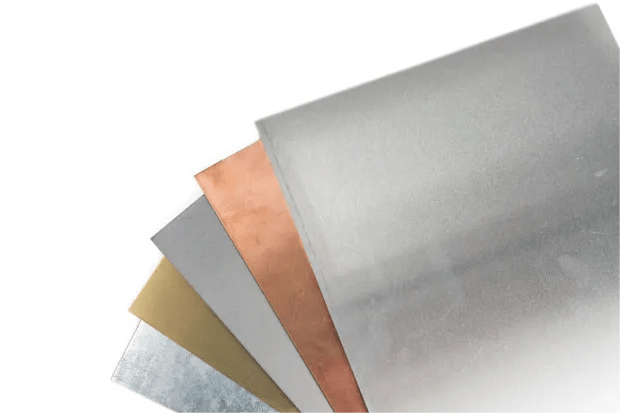
Types of sheet metal
There are many different types of sheet metal, each with its own unique properties and applications. Some of the most common types of sheet metal include:
- Steel: Steel is the most common type of sheet metal, and it is available in a wide range of grades and thicknesses. Steel sheet metal is strong and durable, making it ideal for applications such as automotive body panels, construction materials, and appliances.
- Aluminum: Aluminum sheet metal is lightweight and corrosion-resistant, making it ideal for applications such as aircraft components, food packaging, and siding.
- Copper: Copper sheet metal is highly conductive and has a natural antimicrobial property, making it ideal for applications such as electrical wiring, roofing, and plumbing.
- Brass: Brass sheet metal is a combination of copper and zinc, and it is known for its good machinability and formability. Brass sheet metal is often used in applications such as jewelry, musical instruments, and hardware.
- Stainless steel: Stainless steel sheet metal is resistant to corrosion and rust, making it ideal for applications such as medical equipment, food processing equipment, and marine hardware.
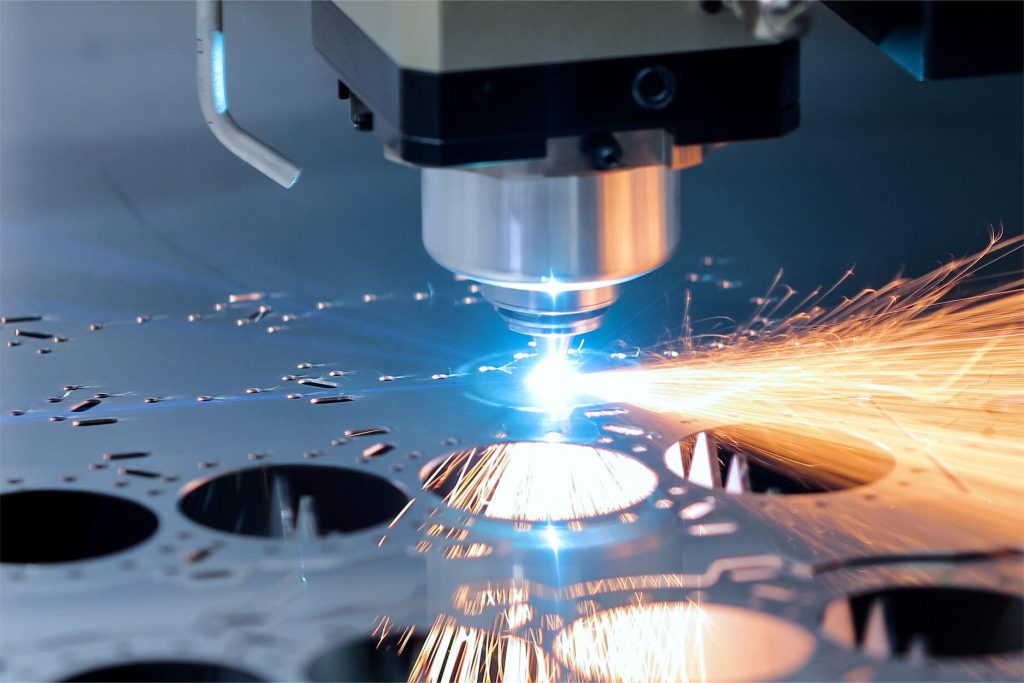
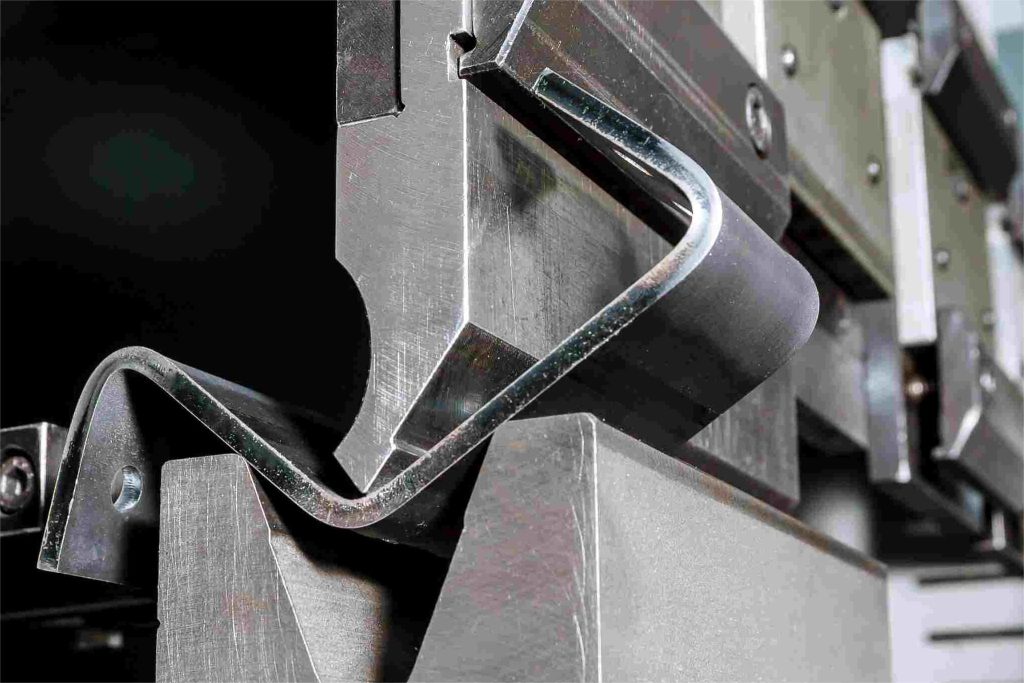
Let's make something significant today!
Types of sheet metal
There are many different types of sheet metal, each with its own unique properties and applications. Some of the most common types of sheet metal include:
- Steel: Steel is the most common type of sheet metal, and it is available in a wide range of grades and thicknesses. Steel sheet metal is strong and durable, making it ideal for applications such as automotive body panels, construction materials, and appliances.
- Aluminum: Aluminum sheet metal is lightweight and corrosion-resistant, making it ideal for applications such as aircraft components, food packaging, and siding.
- Copper: Copper sheet metal is highly conductive and has a natural antimicrobial property, making it ideal for applications such as electrical wiring, roofing, and plumbing.
- Brass: Brass sheet metal is a combination of copper and zinc, and it is known for its good machinability and formability. Brass sheet metal is often used in applications such as jewelry, musical instruments, and hardware.
- Stainless steel: Stainless steel sheet metal is resistant to corrosion and rust, making it ideal for applications such as medical equipment, food processing equipment, and marine hardware.
Strength of sheet metal
The strength of sheet metal depends on a number of factors, including the type of metal, the thickness of the sheet, and the manufacturing process. In general, steel sheet metal is the strongest type of sheet metal, followed by aluminum, copper, brass, and stainless steel.
Sheet metal is a versatile and widely used material in a wide range of industries. It is available in a variety of types, thicknesses, and strengths, making it suitable for a wide range of applications.
Sheet metal is a sustainable material, as it can be recycled and reused. Sheet metal recycling is important for reducing the environmental impact of manufacturing and consumption.